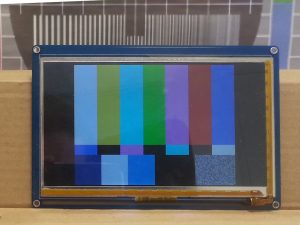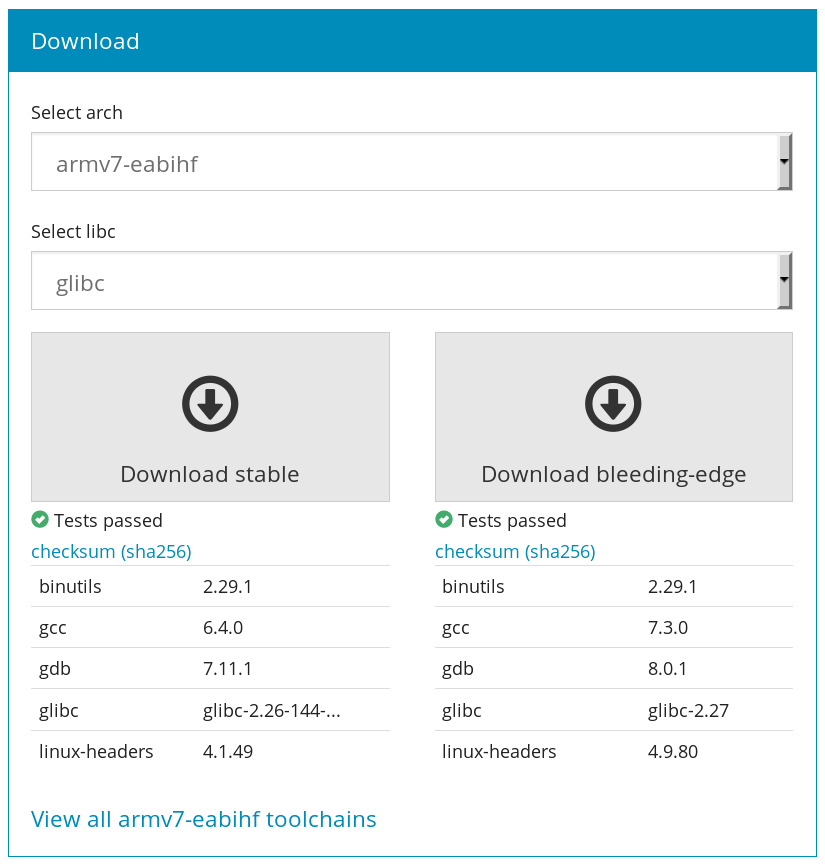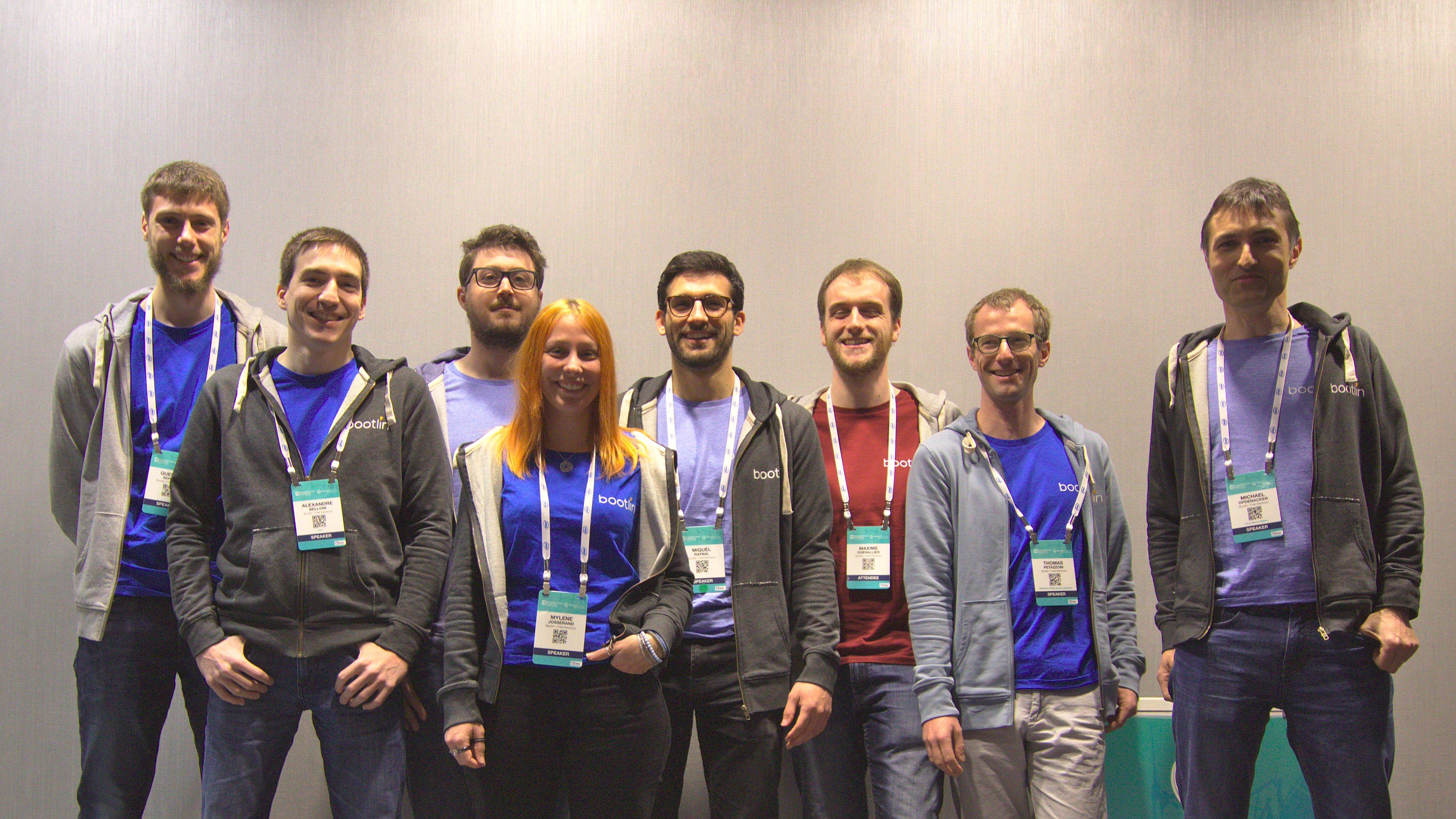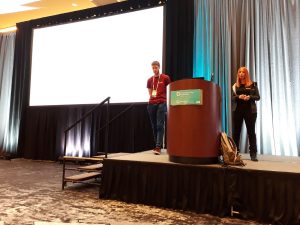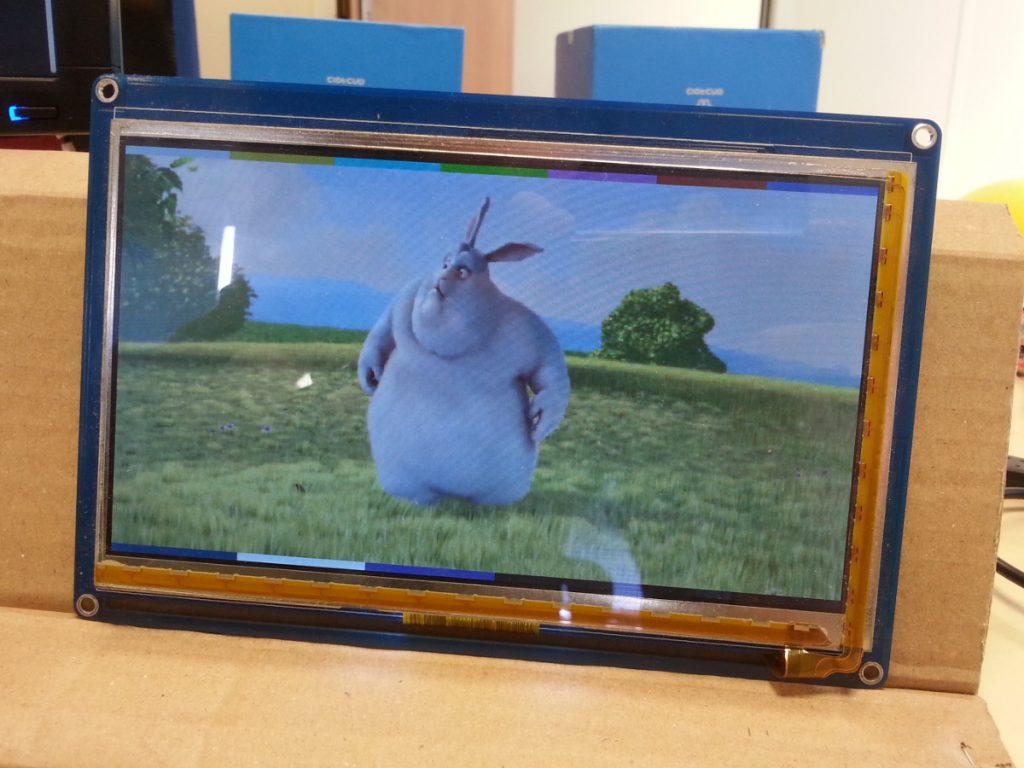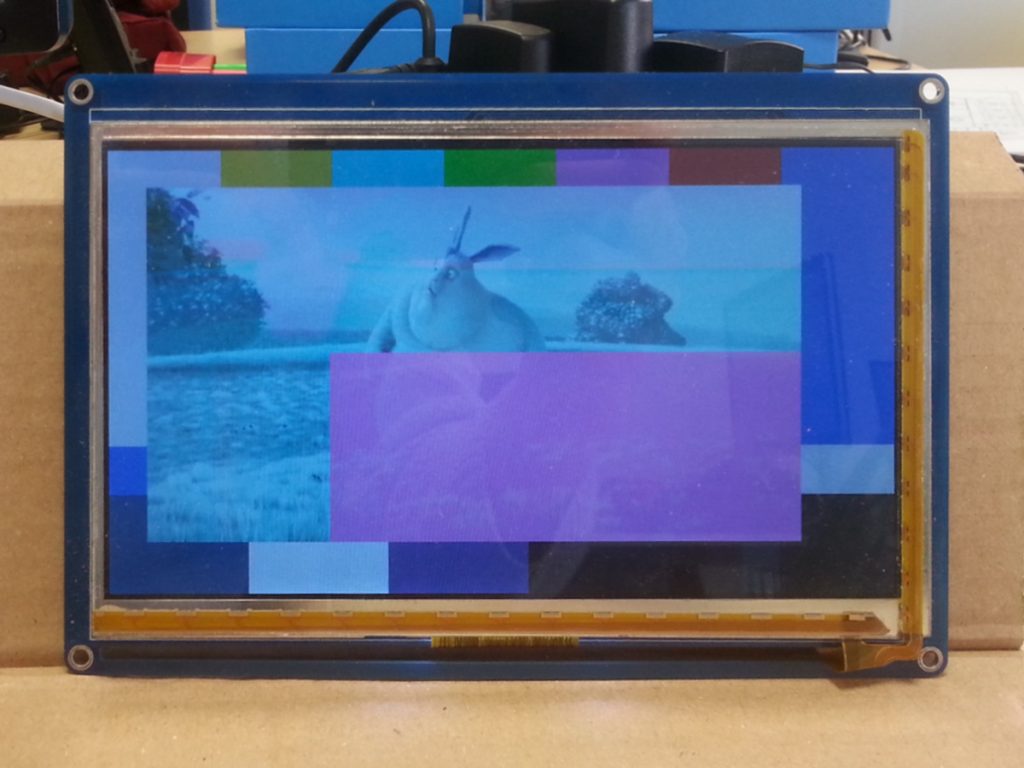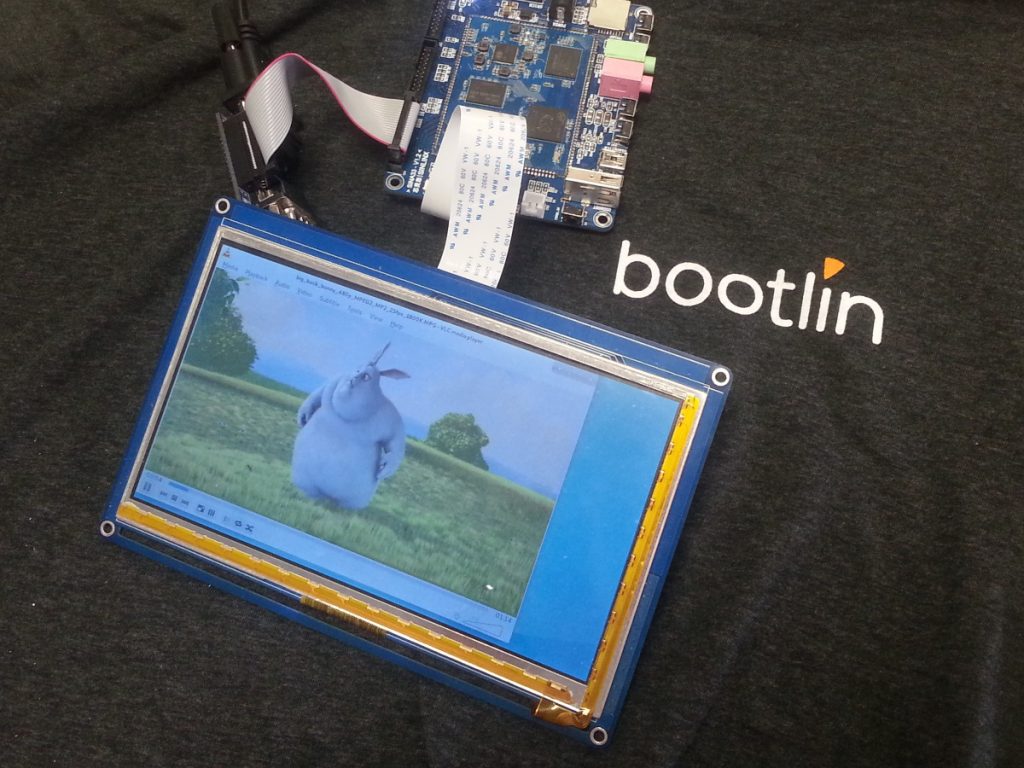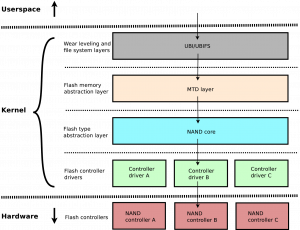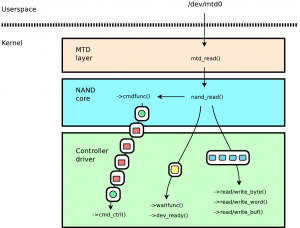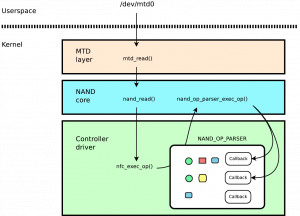As discussed in our previous blog post, Bootlin had again a strong presence at the Embedded Linux Conference North-America, with 8 attendees, 5 talks, one BoF and two E-ALE tutorial sessions.
In this blog post, we would like to highlight a number of talks from the conference that we found interesting. Each Bootlin engineer who attended the conference has selected one talk, and gives his/her feedback about this talk.
Device Tree BoF – Frank Rowand
Talk selected by Michael Opdenacker
The Device Tree BoF (Birds of a Feather session, which means an informal session about a technical topic, allowing participants to openly share questions and information) has been part of Embedded Linux Conferences for at least 2 or 3 years. For me, it has always been a good source of updates about the topic.
Frank started by sharing details about the Device Tree Workshop held in October in Prague, a one day meet-up and workshop for Device Tree contributors (like Maxime Ripard and Thomas Petazzoni from Bootlin who were invited), to address issues and plan for the next months. Slides and notes can be found on elinux.org.
Frank then went on by mentioning utilities, such as:
scripts/dtc/dt_to_config. It is not very new in the mainline kernel, but useful to generate a kernel configuration suitable for the devices present on your platform, in case you didn’t know this tool exists.- There’s an upcoming patch adding options to
dtc(--annotate --full) to keep track of the line numbers in the device tree sources. This helps to locate in which DT source file a given property value comes from. The patch was idle for some time but Julia Lawall volunteered to take care of it. Thanks to her updates, this feature should be accepted in mainline soon. - The device tree compiler in mainline has also been augmented with further build checks. You can now use them by adding
W=1tomake dtb. Here is an example for the Beagle Bone Black dtb:
make W=1 am335x-boneblack.dtb CHK scripts/mod/devicetable-offsets.h DTC arch/arm/boot/dts/am335x-boneblack.dtb arch/arm/boot/dts/am335x-boneblack.dtb: Warning (unit_address_vs_reg): Node /ocp/i2c@44e0b000/tda19988 has a reg or ranges property, but no unit name arch/arm/boot/dts/am335x-boneblack.dtb: Warning (unit_address_vs_reg): Node /ocp/i2c@44e0b000/tda19988/ports/port@0 has a unit name, but no reg property arch/arm/boot/dts/am335x-boneblack.dtb: Warning (unit_address_vs_reg): Node /ocp/i2c@44e0b000/tda19988/ports/port@0/endpoint@0 has a unit name, but no reg property arch/arm/boot/dts/am335x-boneblack.dtb: Warning (unit_address_vs_reg): Node /ocp/ethernet@4a100000/slave@4a100200 has a unit name, but no reg property arch/arm/boot/dts/am335x-boneblack.dtb: Warning (unit_address_vs_reg): Node /ocp/ethernet@4a100000/slave@4a100300 has a unit name, but no reg property arch/arm/boot/dts/am335x-boneblack.dtb: Warning (unit_address_vs_reg): Node /ocp/lcdc@4830e000/port/endpoint@0 has a unit name, but no reg property arch/arm/boot/dts/am335x-boneblack.dtb: Warning (simple_bus_reg): Node /ocp/l4_wkup@44c00000/prcm@200000/clocks missing or empty reg/ranges property arch/arm/boot/dts/am335x-boneblack.dtb: Warning (simple_bus_reg): Node /ocp/l4_wkup@44c00000/prcm@200000/clockdomains missing or empty reg/ranges property arch/arm/boot/dts/am335x-boneblack.dtb: Warning (simple_bus_reg): Node /ocp/l4_wkup@44c00000/scm@210000/scm_conf@0/clocks missing or empty reg/ranges property arch/arm/boot/dts/am335x-boneblack.dtb: Warning (simple_bus_reg): Node /ocp/l4_wkup@44c00000/scm@210000/clockdomains missing or empty reg/ranges property
As far as I am concerned, the most interesting news remained the one that since Linux 4.15, device tree overlays are now easier to code. You no longer have to define weird “fragment” elements. You can now directly write normal nodes and use labels. The syntax is now exactly the same as for regular device tree sources!
For more details, grab the slides and if you event want to follow the discussions that happened that day, watch the video.
Tutorial: Introduction to Reverse Engineering – Mike Anderson
Talk selected by Quentin Schulz
Mike presented in an unusual 2-hour-long slot the different techniques to reverse-engineer things and the different reasons why you’d do so. After a mandatory disclaimer that reverse engineering may be illegal in some regions of the world, he introduced the different tools that anyone aspiring to reverse engineer should possess: from the obvious logic analyzer, multimeter, screwdrivers to the surprising heat gun. He then gave the first and very important step of the reverse engineering process: gathering information about the product by looking for patents, the FCC registration, manufacturer as well as carefully opening its case to examine the different components (maybe with the help of a microscope).
Later, Mike gave the multiple ways to retrieve the firmwares from the product, from the soldering of a JTAG interface to the downloading from the official website. He then offered some tools that can be used to dive into binaries and start the guessing game, and he finished his talk with an example of a reverse engineering of a protocol which required a lot of guessing and social reverse engineering.
Mike’s talk was pleasant to attend because of the high-level presentation of how to do reverse engineering while giving a quick real-life example.
For more details, watch the video and grab the slides.
Graphics Performance Analysis with FrameRetrace: A Responsive UI for ApiTrace – Mark Janes, Intel
Talk selected by Boris Brezillon
I first heard of FrameRetrace when Eric Anholt asked us to add support for the VC4 GPU to this tool, and my experience with it had been rather frustrating in that I was mainly struggling to make it work on a not yet supported architecture instead of being a simple user. So, when I saw that Mark was giving a talk on FrameRetrace usefulness and how to use it, I figured I couldn’t miss it. Well, those who looked carefuly at the schedule know I couldn’t attend it because I was giving my talk at the same time, but I did see it at FOSDEM a month before, and I’m pretty sure not much has changed since then.
Mark first described the GPU debugging/perf-anlysis tools ecosystem, saying that each GPU vendor has its own proprietary tools which most of the time are only supported on Windows. FrameRetrace is an attempt at providing a tool that exposes similar features while being open-source, cross-platform, and easily extensible to new hardware. This project is actually based on an exisiting project called ApiTrace, which it uses to capture OpenGL traces. The new feature that is interesting in FrameRetrace is that you can select the frame you want to replay, get all the hardware perf counters exposed by the GPU for this specific rendering job in order to figure out what is going wrong and then play with the OpenGL code to see how you can make things better and replay the rendering job with your local modification to see if it actually solves the problem.
I must admit I was really impressed by the demo, and now I understand why Eric (and others in the community) would like to have their GPU properly supported in FrameRetrace. It really looks like the kind of tool you don’t know you need until you’ve tested it, but once you do, you can’t do without it.
For more details, watch the video and grab the slides.
The Salmon Diet: Up-Streaming Drivers as a Form of Optimization – Gilad Ben-Yossef
Talk selected by Miquèl Raynal
Gilad was hired about a year ago to become the maintainer of the ARM® TrustZone® CryptoCell® device driver. Until now this driver was out of tree until it has been decided to upstream it. Here starts Gilad’s story.
It appeared that the right way to make it upstream was to go through the staging tree and the whole process around it. It was the first time for him to do it that way, that is why he felt it was interesting to share his experience.
At the beginning of his talk, he recalls that the driver was actually working, people already relied on it. Plus, it was released under the GPL. While all of this could make you think it was clean enough, Gilad realized that people who wrote it actually did not think about upstreaming and almost every patch to clean that driver removed more lines than it added, shrinking step by step the driver until 30% of the lines were removed!
Of course, removing the existing hardware abstraction macros was something to do, as well as running and correcting the whole checkpatch.pl output, but there are plenty of other good habits that one can adapt to his own situation, explained and well illustrated all along this talk.
For more details, watch the video and grab the slides.
Measuring and Summarizing Latencies using the Trace Event Subsystem – Tom Zanussi
Talk selected by Maxime Chevallier
Having some experience dealing with RT topics on Linux, I was looking forward to seeing Tom’s talk about these tracing features.
He gave really good examples on how to use the existing ‘latency histogram’ traces to get a cyclictest-like metric of wakeup latencies by measuring the time between sched_switch, and explaining how this could be re-used for other measurements such as network latencies.
What he presented was more than just having a trace in a buffer when a function is called. The tracing subsystem allows the use of handlers to perform actions when an event occurs. As an example, he demonstrated how to use the onmax handler to accumulate the maximum wakeup latency observed, each time saving crucial pieces of information on the execution context.
He then went on to describe the next-level features that are being merged, namely function events by Steven Rostedt, and Inter events by Tom himself. They allow the user to use any of the kernel functions as tracepoints, and build complex events and traces to pinpoint really specific sequences.
I recommend to read this LWN article on inter-event tracing, and of course have a look at Tom’s talk and slides.
Steering Xenomai into the Real-Time Linux Future – Jan Kiszka
Talk selected by Thomas Petazzoni
In this talk, long-term Xenomai developer and Siemens engineer Jan Kiszka gave a very interesting status of the Xenomai project and its roadmap. He started by refreshing the audience about what Xenomai is: an RTOS-to-Linux portability framework. It comes in two flavors: a co-kernel extension for a patched Linux kernel, and as libraries running for native Linux (including PREEMPT_RT). He then went on to compare the respective advantages and drawbacks of the two flavors, citing accurate modeling of legacy RTOS behavior and strong separation of real-time vs. non real-time code as the key advantages of the co-kernel approach.
Jan then summarized the history of Xenomai, from the early days as a sub-project of RTAI to the current status of Xenomai 3.0, released in 2015 after more than 5 years of development. However, even though Xenomai is widely used in the industry, its development relies on just a few individuals. Siemens is a heavy user of Xenomai, and in 2017, they started a discussion: should they migrate away from Xenomai or invest into it. Siemens made the decision to invest in the project. The same year, Xenomai main developer Philippe Gerum published an e-mail RTnet, Analogy and the elephant in the room also calling for help to maintain some parts of Xenomai.
Following those discussions, some changes were decided in the Xenomai project: Philippe Gerum will step back from the project lead, and Jan Kiszka will take over his role.
Regarding the I-Pipe kernel patch (which allows to support the co-kernel approach), the Xenomai project will discontinue a number of architectures (nios2, SH, Blackfin, PPC64, ARM < v7) and will only maintain patches for the latest Linux kernel LTS, in order to reduce the maintenance effort. Jan announced that Xenomai 3.0.7 is soon to be released, that Xenomai 3.1 will introduce ARM64 support, and that Xenomai 2 is unmaintained and therefore users should migrate to Xenomai 3. He also gave a status on the driver stacks, citing that RTnet needs more love, and that Analogy is orphaned and needs a new maintainer. Towards the end of his talk, Jan then started discussing the more distant future of Xenomai. The future version of Xenomai has the goal of improving the integration of the co-kernel approach, to simplify maintenance and possibly provide a chance to be upstreamed in Linux. This new approach will be split in two elements, called Dovetail (interrupt routing, co-kernel hooks) and Steely (co-kernel implementation). He made it clear that this is currently not production-ready at all. He noted that this new implementation allows a significant reduction of the code base, about 50% smaller than the current implementation. The code is already available in two Git repositories: Dovetail and Steely.
All in all, Jan’s talk was a very interesting one, providing a good coverage of Xenomai’s status and future. The video of his talk is definitely worth watching, and the slides are also available.
An Introduction to Asymmetric Multiprocessing: When this Architecture can be a Game Changer and How to Survive It – Nicola La Gloria & Laura Nao
Talk selected by Mylène Josserand
In this talk, Nicola La Gloria and Laura Nao from Kynetics presented how to handle communication between a micro-controller running bare metal code and a CPU with a full OS (such as GNU/Linux or Android).
They showed the different approaches for communication (supervised or not supervised: i.e. CPU and MCU can communicate using an hypervisor or directly) and presented the Inter-Processing Communication.
After this introduction, Laura told us about their use-case, running on an NXP i.MX7, which comprises a Cortex-M4 micro-controller and a Cortex-A7 processor: the MCU retrieves data from a sensor, which will be displayed by the CPU.
She gave feedback on how they implemented this communication and the different mechanisms used (Message Unit, RPMsg, RDC, kexec/kdump, etc). The explanation of the different mechanisms was really interesting, and particularly relevant for those who had never heard about them.
They did a short tutorial and gave some tips that would definitely be appreciated by people who start this kind of project. And finally, they did a demonstration of all the work they have done.
So if you are interested in the subject or even only for your general knowledge, have a look at their talk (video and slides).
System-in-Package Technology: Making it Easier to Build Your Own Linux Computer – Erik Welsh & Jason Kridner
Talk selected by Alexandre Belloni
Eric Welsh started to talk about how software influences hardware design and why open source hardware matters. He then presented the System-in-Package technology and in particular the Octavo OSD3358. It includes a TI AAM335x SoC, DDR3 SDRAM, a PMIC and all the related power circuitry, components which are always required. This allows the hardware engineers to concentrate on the added value of the final product.
Great pictures and videos of the SiP internals and its manufacturing process were shown.
Jason then came on stage to present the OSD3358 integration on the PocketBeagle.
Eric finally explained how easy it is to assemble the OSD3358 on a PCB, even by hand with a video to prove it. He finally concluded by summing up the benefits of using a SiP: easy bring-up, lower cost of PCB, easy manufacturing and migration from SBC prototyping to custom PCB.
It was quite enlightening for software engineers as it showed the hardware internals with some great details.
Have a look at the video and slides.
In conclusion, this was again a really nice opportunity to share and acquire knowledge from other engineers deeply involved in the Open Source community, as well as meeting people that we sometimes know only by their name on a mailing list. Next year this event will happen in Monterey Bay, California (March 19 – 21, 2019). See you there!


